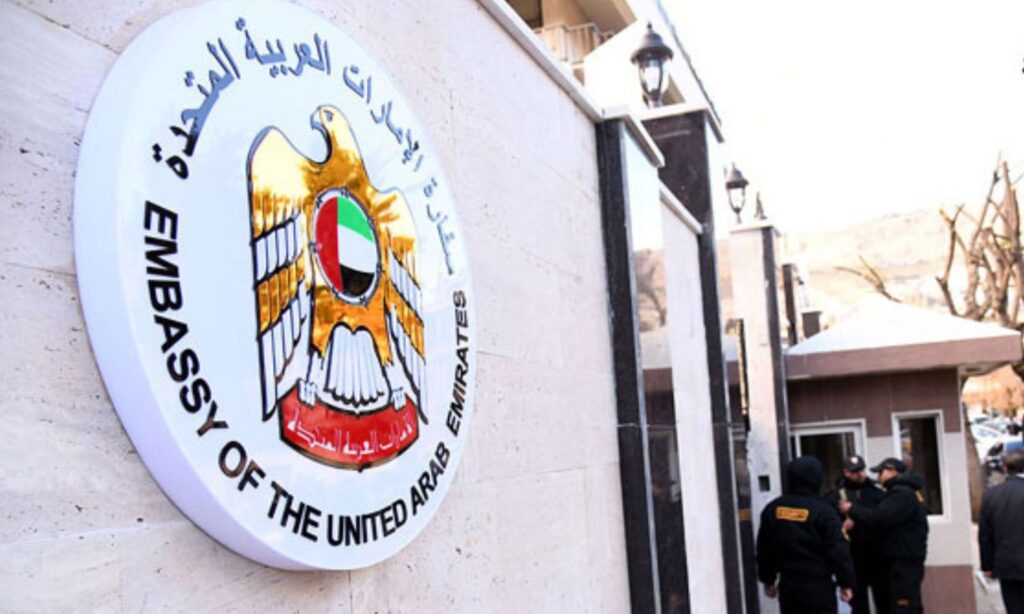Hassan Ahmed al-Shehhi arrived in the capital, Damascus, on January 29, becoming the first ambassador of the UAE in Syria since the suspension of the embassy’s operations in 2012, according to what the pro-regime newspaper Al-Watan, published.
The UAE Ministry of Foreign Affairs has not yet officially announced the appointment of al-Shehhi as its ambassador to Syria.
Al-Shehhi held the position of the UAE Ambassador to Iraq from 2015 until 2019 and served as the country’s ambassador to Sudan.
He was preceded in the position of the UAE ambassador to Syria 13 years ago by Salem Issa Qattam al-Zaabi, who currently occupies the position of the UAE Ambassador to Iraq.
Arab and foreign countries, including the UAE, severed their diplomatic relations with the Syrian regime at the beginning of 2011 as a result of the suspension of Syria’s membership in the Arab League in response to the acts of violence and killing used by the regime against civilians from its people.
At the end of 2018, the UAE Ministry of Foreign Affairs announced the reopening of its embassy in Damascus, and the acting chargé d’affaires, Abdul Hakim al-Naemi, carried out his diplomatic duties without appointing an ambassador for the state to date.
The Minister of State for Foreign Affairs in the UAE attributed the decision to reopen the embassy in Damascus to the fact that “the Arab role in Syria has become more necessary towards the Iranian and Turkish regional encroachment,” considering that the UAE seeks through its presence in Damascus to activate this role.
Syrian-UAE relations
The UAE is the first Arab country to welcome the president of the Syrian regime, Bashar al-Assad, in his first official visit in March 2022 since the outbreak of popular protests in Syria in 2011, after which his political isolation from the Arab countries was broken.
It was preceded by the first visit of the UAE Foreign Minister, Abdullah bin Zayed, to the president of the Syrian regime, Bashar al-Assad, in October 2021, since 2011, followed by an increase in Emirati support within the regime-controlled areas, including vital projects related to the water system and the establishment of a photovoltaic power station.
The UAE insists on being the most Arab country supporting the re-floating of the regime regionally and internationally, for goals that do not seem entirely clear, including the search for economic and investment opportunities in Syria as part of the reconstruction process, and proving itself to everyone that it is a main player in the region, with a role and presence that is no less important than the Turkish, Saudi, and Qatari roles.
The UAE hosted the 28th session of the World Climate Action Summit, amid an invitation to the president of the Syrian regime.
But before the start of the conference, there were demands from organizations and human rights entities to cancel the invitation to the conference and demands for the handover of al-Assad during his attendance at the climate summit after the French criminal investigation judges issued arrest warrants against him for his use of internationally banned chemical weapons, on November 15, and afterward, al-Assad did not attend without clarifying the reason.

